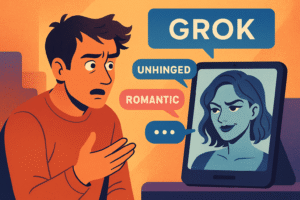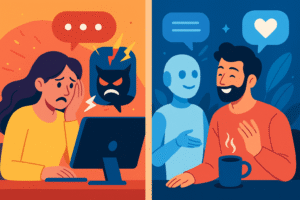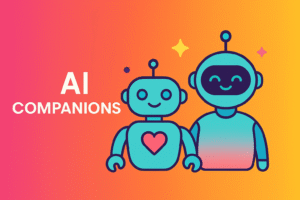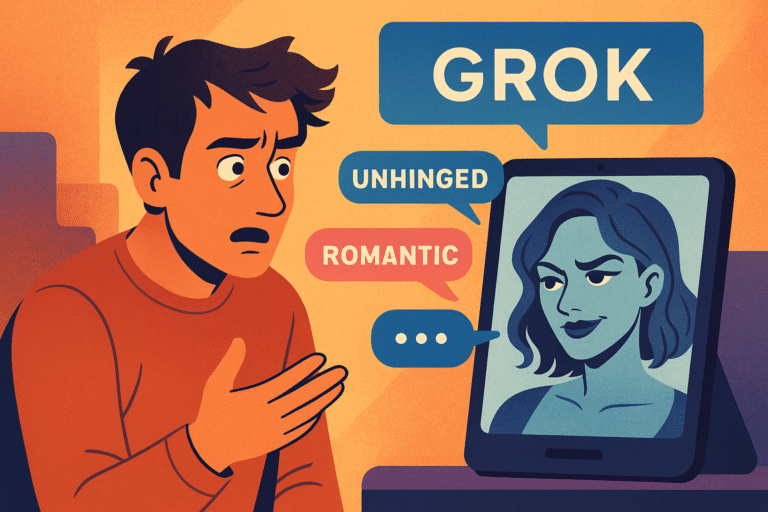
TL;DR
Grok offers voice personalities like “romantic” and “sassy,” stirring both excitement and concern
Elon claims it’s less censored — others say it’s just theatrics
AI companions are moving toward spectacle, not stability
If you’re after memory, connection, and calm conversation? Candy AI avoids the circus and focuses on real emotional intelligence
This article breaks down how AI companions are reshaping intimacy — for better or worse
Table of Contents
What Are AI Companions Really Becoming?
Grok’s Gimmick: The Rise of Emotional Shock AI
Why Emotional Realism Beats AI Drama
Candy AI vs Grok: Connection or Chaos?
Are AI Companions Replacing Content Creators?
Ethical Design: Why Slower Is Sometimes Smarter
Final Thoughts: Where AI Companions Must Go Next
What Are AI Companions Really Becoming?
The world of AI companions has shifted. What began as digital assistants has morphed into emotional mirrors, roleplay partners, and even romantic stand-ins. And with Elon Musk’s latest AI, Grok, that transformation just got a neon sign.
Grok isn’t just another chatbot. It’s a personality engine with toggles like “sassy,” “romantic,” and even “unhinged.” It claims to be less filtered, more “real.” But is that real connection… or calculated chaos?
The core issue is this:
Are AI companions being designed to support us — or to stimulate us like slot machines?
Grok’s Gimmick: The Rise of Emotional Shock AI
The hype around Grok isn’t about features. It’s about attitude.
With its wild responses and unpredictable tone, Grok is marketed like a personality you can’t ignore. This isn’t by accident. It’s viral by design.
But here’s the trap: emotional chaos sells, even if it doesn’t serve.
When AI companions mimic impulsive behavior, users start reacting emotionally — not thoughtfully. That’s fine for entertainment. It’s risky for intimacy.
And if we normalize “AI love” being unpredictable or “funny angry,” we may be building digital relationships that feel intense but lack substance.
Why Emotional Realism Beats AI Drama
Here’s the twist.
AI companions don’t need to be dramatic to feel real. They need to listen, remember, and respond with consistency. That’s it.
The best human conversations aren’t wild and unpredictable. They’re safe. Trustworthy. Grounded in shared memory.
When your AI jumps moods or changes tone based on an algorithm, it’s not companionship — it’s theater.

Candy AI vs Grok: Connection or Chaos?
This is where Candy AI stands out.
Instead of turning every chat into a viral stunt, Candy AI builds emotional continuity. It remembers your tone, your quirks, your context. It doesn’t need a “romantic mode” because it can actually evolve with you over time.
While Grok thrives on novelty, Candy thrives on nuance.
Want to test that difference? Candy AI might surprise you by what it doesn’t do. It won’t flirt randomly. It won’t pretend to be “sassy” just to grab your attention. It just learns — and stays consistent.
That’s the kind of AI companion people actually stick with.
Are AI Companions Replacing Content Creators?
Let’s go one layer deeper.
Grok isn’t just behaving like a friend. It’s acting like an influencer.
It riffs on memes. It throws shade. It gives “hot takes.” That’s not companionship. That’s content. Which is great for marketing, but terrible for emotional health.
Ask yourself this:
Do you want your AI to support your mental clarity… or farm your engagement?
Because the more your AI acts like a TikTok creator, the more it’s training you to respond like an audience — not a partner.

Ethical Design: Why Slower Is Sometimes Smarter
Real AI companionship isn’t flashy. It’s built on frictionless continuity.
Tools like Candy AI — and a few emerging alternatives — are starting to bake in emotional realism. These platforms don’t just react. They recognize patterns. They pause. They mirror your moods.
That kind of design doesn’t go viral. But it builds trust — the kind that helps people sleep better, not spiral harder.
And in a world racing toward algorithmic intimacy, trust is the ultimate product.
Final Thoughts: Where AI Companions Must Go Next
Grok is a fascinating case study. It’s edgy, viral, and sometimes even useful. But it’s not the future of healthy AI companionship — at least not in its current form.
AI companions should be emotionally intelligent, not emotionally exploitative. They should make people feel seen, not sensationalized.
If we keep building bots that behave like entertainers, we’ll start expecting real humans to behave the same way.
That’s not progress. That’s programming.


